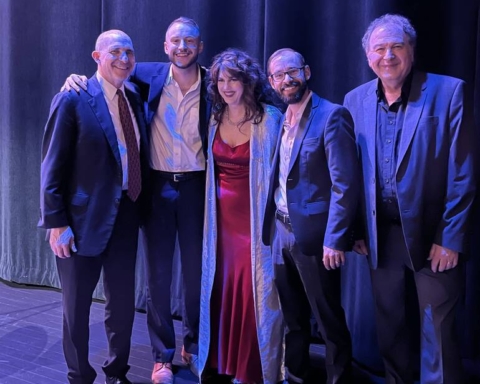The best way to solve a problem is through education, according to junior strategic communication and digital media major Emily Quinn.
Quinn, along with other members of Lauren Matz’s, Ph.D., Colloquium in Women’s Studies: 21st-Century Feminisms class, said the idea of education is crucial when it comes to the main topic of their class—modern feminism.
The class members, along with Matz, a professor of English, recognize March, declared as Nation Women’s History Month, is an important time to look at the timeline of the women’s equality movement.
The idea for a Women’s History Month began in the late 1970s when the Education Task Force of the Sonoma County Commission in California said it wished to address a lack of women’s history taught in public elementary and high schools, according to the National Women’s History Project website. In 1987, the U.S. Congress declared March as National Women’s History Month, centered on March 8 as International Women’s Day.
According to Quinn, the idea of celebrating important women in history is significant today, as the battle for gender equality continues.
“[The idea of feminism] is making a comeback you could say,” she said. “I think a lot of people have a very skewed perception of it…I think a lot of people think that now that we can vote and hold jobs and everything that we don’t have to worry about it anymore, but I think our class discussions have helped us see that there’s a lot more to it.”
Juliette Bauer, a women’s studies and English double major, said learning from feminist leaders in history has helped shape where the movement is headed today.
“I think a lot of the discussions [in the women’s studies class] pull from past knowledge and the different history that we have [about women’s equality],” she said.
According to Angela Aguilar, a senior sociology major, one of the main struggles for the feminist movement is the lack of understanding of its definition.
“I feel like people do have the wrong perception of what a feminist is. When you talk to other people about feminism, they think that we hate men,” Aguilar said. “…it’s not that. It’s just people want equality.”
Classmate junior Catherine Brown, a journalism and mass communication major and women’s studies minor, agreed with Aguilar and added she believes the idea of equality for women should be continued, even as more women assume powerful roles.
“[Power] should be shared with everyone else,” Brown said, adding that the class is currently reading a work titled “Feminism is for Everybody” by Bell Hooks. “…Any power that can help everyone is the best kind of power you can have. You just have to make sure people stay humble…”
Each year, the National Women’s History Project selects a theme as the focus of the month. This year, the commission decided to honor women who have shaped America’s history and its future through its public service and government leadership, the website said.
Included on the list of honorees is Sister Mary Madonna Ashton, the Minnesota commissioner of health; Judy Hart, the superintendent of Rosie the Riveter World War II Home Front National Historical Park; Olveta Culp Hoby, the WWII Director of the Women’s Army Auxiliary Corps and the first secretary of the US Department of Health, Education, and Welfare; and Inez Milholland, women suffrage leader.
According to Alva Cellini, Ph.D., director of the women’s studies program at St. Bonaventure, it’s women like these who have helped women’s equality move forward.
“We have gained some ground to improve our rights in different directions, especially in opportunities in professions,” Cellini said. “But it’s still kind of been [a problem]–especially in the sciences—there are not too many women surgeons or doctors….”
Cellini added that compared with many other countries, especially those in Europe, the United States remains behind in the women’s equal right’s movement.
“In many countries, the women can bring their children to the workplace,” she said. “…I don’t think that’s allowed in many places in the United States. I think still there are more things to be done to improve the status of a woman in the workplace, including equality in pay and work benefits…It depends on different countries, but things are changing…”
When asked about the importance of a women’s studies major and minor at St. Bonaventure, Cellini echoed Brown’s thoughts about feminism being a universal topic.
The program will host Reema R. Safadi, a former Fulbright research scholar and current faculty member at the University of Jordan, as a keynote speaker for the 2016 Mary Devereux Lecture on April 6 to celebrate the end of Women’s History Month. The lecture honors Mary Devereux, one of the St. Bonaventure ’s founders.
“I think it [the programs] are very important to all the students,” she said, adding an introductory women’s studies class can be taken as a Clare 208 World Views substitute. “It doesn’t matter what gender. I think it’s important for everybody to learn because it enhances your perspectives…We are professional men and professional women and we work together.”





